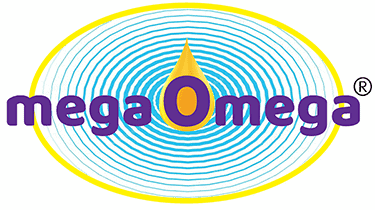
GO FIGURE!
Omega-3 DHA – Food for the Brain
Ever get caught in your tracks wondering why you came into a room or what you were looking for?
Ever stop in your tracks wondering why you walked into a room or what you were about to do? We have all experienced moments like this, so you are certainly not alone. However, when memory lapses, brain fog, or “senior moments” begin to occur more frequently, it may be a sign that the brain is not receiving the nutritional support it needs.
If you are noticing increasing difficulty with focus, recall, or mental clarity, the cause may be more than just a busy lifestyle or a few nights of poor sleep. Age-related cognitive decline and long-term nutritional deficiencies—particularly low intake of Omega-3 fatty acids—may play a role.
Research suggests that approximately 40% of people will experience age-related memory changes at some point in their lifetime, with risk increasing after the age of 65. Supporting brain health early and consistently is therefore essential.
Omega-3 fatty acids are critical for the healthy development and proper functioning of many body systems. Among them, docosahexaenoic acid (DHA) is one of the most extensively studied and is especially important for brain health. DHA is so vital to early brain development that it is routinely added to infant formula, and supplementation is commonly recommended during pregnancy and breastfeeding.
Importantly, DHA is not only essential during infancy—it is required throughout life to maintain healthy brain structure and function.
How DHA Supports Brain Health
Research suggests that adequate DHA intake may support:
- Memory, learning, and mental clarity
- Focus, attention, and processing speed
- Mood balance and emotional regulation
- Healthy aging of brain cells and neural connections
DHA is a key structural component of brain cell membranes. It supports membrane fluidity, efficient neurotransmitter release, and communication between brain cells. When DHA intake is low, the brain’s ability to renew and maintain these membranes may be compromised, potentially accelerating cognitive aging.
The Importance of Marine Omega-3s for Brain Health and Mental Wellbeing
A significant proportion of the global population is deficient in long-chain marine Omega-3 fatty acids. These essential fats play a central role in brain function and mental health, supporting neurological development in early life and protecting cognitive function well into older age.
Dietary Omega-3s have been shown to play a role in the prevention and management of various neurological and mood-related conditions, including depression and dementia, particularly Alzheimer’s disease. Deficiency in Omega-3s may impair membrane renewal in brain cells, contributing to faster cerebral aging and increased vulnerability to mental health disorders.
Evidence also indicates that low intake of marine Omega-3s is associated with a higher risk of conditions such as Attention Deficit Hyperactivity Disorder (ADHD), autism spectrum disorder, bipolar disorder, depression, and suicidal ideation. Clinical studies using Omega-3 supplementation have shown promising improvements across a range of mental health outcomes (Nutrients 2020, 12, 2333).
Using Algae Oil Omega-3s as a Fish Oil Alternative
Populations that consume diets rich in Omega-3s, such as the traditional Japanese diet high in fish, have long been noted for their longevity and lower rates of cardiovascular and cognitive disease. In contrast, Western diets are typically deficient in Omega-3 fatty acids, contributing to poorer long-term health outcomes.
As we age, maintaining adequate intake of Omega-3 DHA and EPA becomes increasingly important for preserving mental clarity, emotional wellbeing, and overall quality of life, while reducing the risk of age-related neurological decline.
While fish oil has traditionally been prescribed as a source of Omega-3s, not everyone tolerates or wishes to consume it due to issues such as taste, reflux, sustainability concerns, or contamination risks. megaOmega® Algae oil provides a clean, sustainable, and effective alternative, delivering DHA without the drawbacks associated with fish oil.


